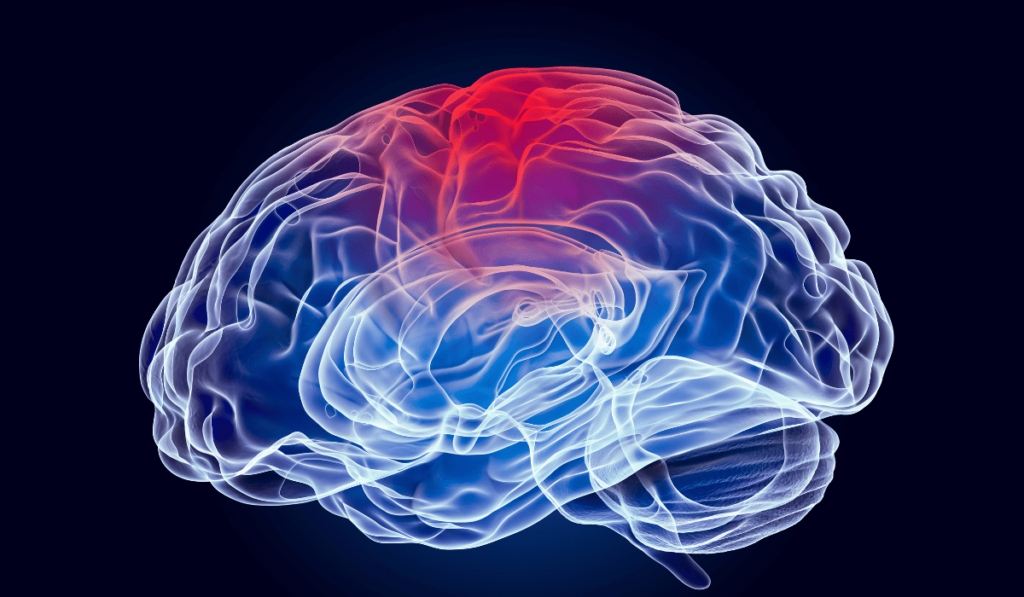Many people experience loss of sensation at some point in their lives, whether it’s temporary or long-term. It can be a disconcerting experience that impacts your daily life and activities. In this blog post, we will examine into the causes of loss of sensation, how it affects you, and most importantly, how you can manage and cope with this challenge. Understanding the intricacies of loss of sensation is the first step towards regaining a sense of control and well-being in your life.
Key Takeaways:
- Loss of sensation can be caused by a variety of factors, including nerve damage, injury, or medical conditions.
- Understanding the underlying cause of loss of sensation is crucial in order to determine the appropriate treatment and management techniques.
- Managing loss of sensation may involve physical therapy, medication, lifestyle changes, or surgical interventions depending on the specific circumstances of the individual.
Defining Loss of Sensation
While our senses are crucial for navigating the world around us, loss of sensation can significantly impact your daily life. Sensory loss refers to the partial or total inability to perceive stimuli through one or more of your senses. This can include loss of touch, loss of taste, loss of smell, loss of hearing, and loss of vision.
Types of Sensory Loss
There are several types of sensory loss that you may encounter, each affecting a different aspect of your perception. Some common types include:
- Anosmia: Loss of smell
- Aphasia: Loss of taste
- Deafness: Loss of hearing
- Anesthesia: Loss of touch
- Blindness: Loss of vision
The consequences of these sensory losses can vary from mild inconvenience to severe impairment in your daily life. The key is to recognize the signs early and seek appropriate medical attention for proper diagnosis and management.
Causes of Sensory Loss
Types of sensory loss can be caused by a variety of factors, including:
- Genetic factors: Inherited conditions that affect sensory functions
- Trauma: Injuries to the sensory organs or nerves
- Illness: Chronic diseases such as diabetes or multiple sclerosis
- Exposure: Prolonged exposure to loud noises, chemicals, or toxins
- Aging: Natural aging process leading to sensory decline
The causes of sensory loss can range from temporary conditions to permanent, life-altering disabilities. It is important to understand the underlying cause of your sensory loss to determine the most effective treatment options and management strategies.
The Impact of Sensory Loss
Some individuals may experience a wide range of challenges when dealing with the loss of sensation. This can have a significant impact on different aspects of your life, including emotional well-being, daily activities, and overall quality of life.
Emotional and Psychological Effects
To begin with, the emotional and psychological effects of sensory loss can be profound. You may feel a sense of grief or sadness over the loss of a vital sensory experience, leading to feelings of isolation or frustration. Additionally, you may struggle with anxiety or depression as you navigate the adjustments to your new reality.
Daily Life Challenges
Psychological studies have shown that individuals with sensory loss may face unique challenges in their daily lives. For instance, tasks that were once simple and routine may now require extra effort and concentration. Simple tasks like cooking, cleaning, or navigating unfamiliar spaces can become more difficult and time-consuming with sensory loss.
Diagnosing Sensory Loss
Many factors can contribute to sensory loss, including nerve damage, diabetes, and certain medical conditions. Diagnosing the cause of your sensory loss is crucial in determining the appropriate treatment and management plan.
Medical Evaluation
An initial medical evaluation by a healthcare provider is important in determining the underlying cause of your sensory loss. During this evaluation, your healthcare provider will review your medical history, conduct a physical examination, and may perform neurological tests to assess your sensory functions. Be sure to provide detailed information about your symptoms, when they started, and any factors that may have triggered them.
Diagnostic Tests
For a more in-depth assessment, your healthcare provider may recommend a variety of diagnostic tests to pinpoint the cause of your sensory loss. These tests may include nerve conduction studies, electromyography, blood tests, and imaging studies such as MRI or CT scans. These tests can help identify nerve damage, underlying medical conditions, or other abnormalities that may be affecting your sensory functions.
Treatment Options
Medications and Therapies
To address your loss of sensation, there are several treatment options available to you. Medications such as pain relievers or anticonvulsants may help manage any discomfort or pain you are experiencing. Physical therapy can also be beneficial in improving your muscle strength and flexibility, which can help compensate for any loss of sensation. Additionally, occupational therapy can assist you in learning how to adapt and perform daily tasks despite your diminished sensation.
Alternative Approaches
One alternative approach to managing your loss of sensation is acupuncture. This traditional Chinese medicine technique involves inserting thin needles into specific points on your body to help alleviate pain and improve circulation. Massage therapy is another alternative option that can increase blood flow to the affected area and potentially improve your sense of touch.
Another alternative approach to consider is biofeedback therapy. This treatment involves using electronic sensors to help you become more aware of your body’s responses and learn how to control them. By providing you with real-time feedback, biofeedback therapy can help you regain some control over your sensation.
Coping Mechanisms
Once again, you find yourself faced with the challenge of adapting to and managing the loss of sensation. This may feel overwhelming at first, but there are coping mechanisms that can help you navigate this new reality.
Adaptation and Compensation
To cope with the loss of sensation, your body and mind will naturally start to adapt and compensate in various ways. Your other senses may become more heightened as a way to compensate for the one that is diminished. For example, if you have lost sensation in your hands, you may find that your sense of touch in other parts of your body becomes more acute. By paying attention to these changes and finding ways to make the most of them, you can gradually adjust to your new sensory landscape.
Assistive Technology
Mechanisms such as assistive devices and technology can also be incredibly helpful in managing the loss of sensation. These tools are designed to enhance your remaining senses and improve your quality of life. Assistive technology can range from simple tools like tactile markers and magnifiers to more advanced devices such as sensory substitution systems that help translate one type of sensation into another. By incorporating these technologies into your daily routine, you can regain a sense of independence and improve your overall well-being.
Assistive technology can help bridge the gap created by the loss of sensation, allowing you to continue performing daily tasks and engaging with the world around you. By exploring different options and finding what works best for you, you can maintain a sense of control and autonomy in spite of the challenges you may face.
Rehabilitation and Recovery
Now that you have experienced a loss of sensation, it is crucial to focus on rehabilitation and recovery to regain function and independence. Physical therapy plays a vital role in your journey towards healing.
Physical Therapy
Rehabilitation through physical therapy involves a personalized treatment plan to improve your strength, flexibility, and range of motion. A skilled physical therapist will guide you through exercises and techniques designed to target the specific areas affected by the loss of sensation. By consistently following your physical therapy regimen, you can strengthen your muscles, enhance your balance, and work towards restoring sensory functions.
Occupational Therapy
Any loss of sensation can impact your ability to perform daily activities and tasks. Occupational therapy focuses on helping you adapt to these changes and regain independence in your everyday life. Occupational therapists are trained to assess your environment and provide strategies and tools to facilitate your participation in activities that are meaningful to you.
Understanding the role of occupational therapy in your recovery can be empowering. These therapy sessions are aimed at not just restoring function, but also enhancing your overall quality of life by addressing challenges brought about by the loss of sensation.
Final Words
Upon reflecting on the intricacies of understanding and managing loss of sensation, it becomes clear that it is a complex and often challenging experience for individuals. Whether dealing with numbness, tingling, or complete loss of sensation, it is vital to seek professional medical advice and support to better manage and cope with such changes in your body. Do not forget, you are not alone in this journey, and there are resources and treatments available to help you navigate through this difficult time.
By staying informed, proactive, and open to seeking help, you can empower yourself to better understand and manage the loss of sensation. Knowing that there are experts and support systems ready to assist you can bring a sense of relief and hope. Do not forget, your well-being is paramount, and taking steps to address any concerns related to loss of sensation is a positive and courageous choice for your health and overall quality of life.
FAQ
Q: What causes loss of sensation?
A: Loss of sensation can be caused by a variety of factors such as nerve damage, injury, vitamin deficiencies, chronic diseases like diabetes, and neurological conditions.
Q: What are the common symptoms of loss of sensation?
A: Common symptoms of loss of sensation include numbness, tingling, burning sensations, weakness, and difficulty sensing hot or cold temperatures.
Q: How is loss of sensation diagnosed?
A: Loss of sensation is typically diagnosed through a physical examination, medical history review, nerve conduction studies, electromyography, and imaging tests like MRIs or CT scans.
Q: Can loss of sensation be reversed?
A: The ability to reverse loss of sensation depends on the underlying cause. In some cases, treating the underlying condition or injury can help restore sensation.
Q: How can loss of sensation be managed?
A: Managing loss of sensation involves addressing the underlying cause, using medications to control symptoms, physical therapy, occupational therapy, and lifestyle modifications.
Q: Are there any preventive measures for loss of sensation?
A: To help prevent loss of sensation, it is important to maintain a healthy lifestyle, manage chronic conditions like diabetes, avoid prolonged pressure on nerves, and protect yourself from injuries.
Q: When should I see a doctor for loss of sensation?
A: It is important to see a doctor if you experience sudden or unexplained loss of sensation, if the loss of sensation is affecting your daily activities, or if you have other concerning symptoms accompanying the loss of sensation.



